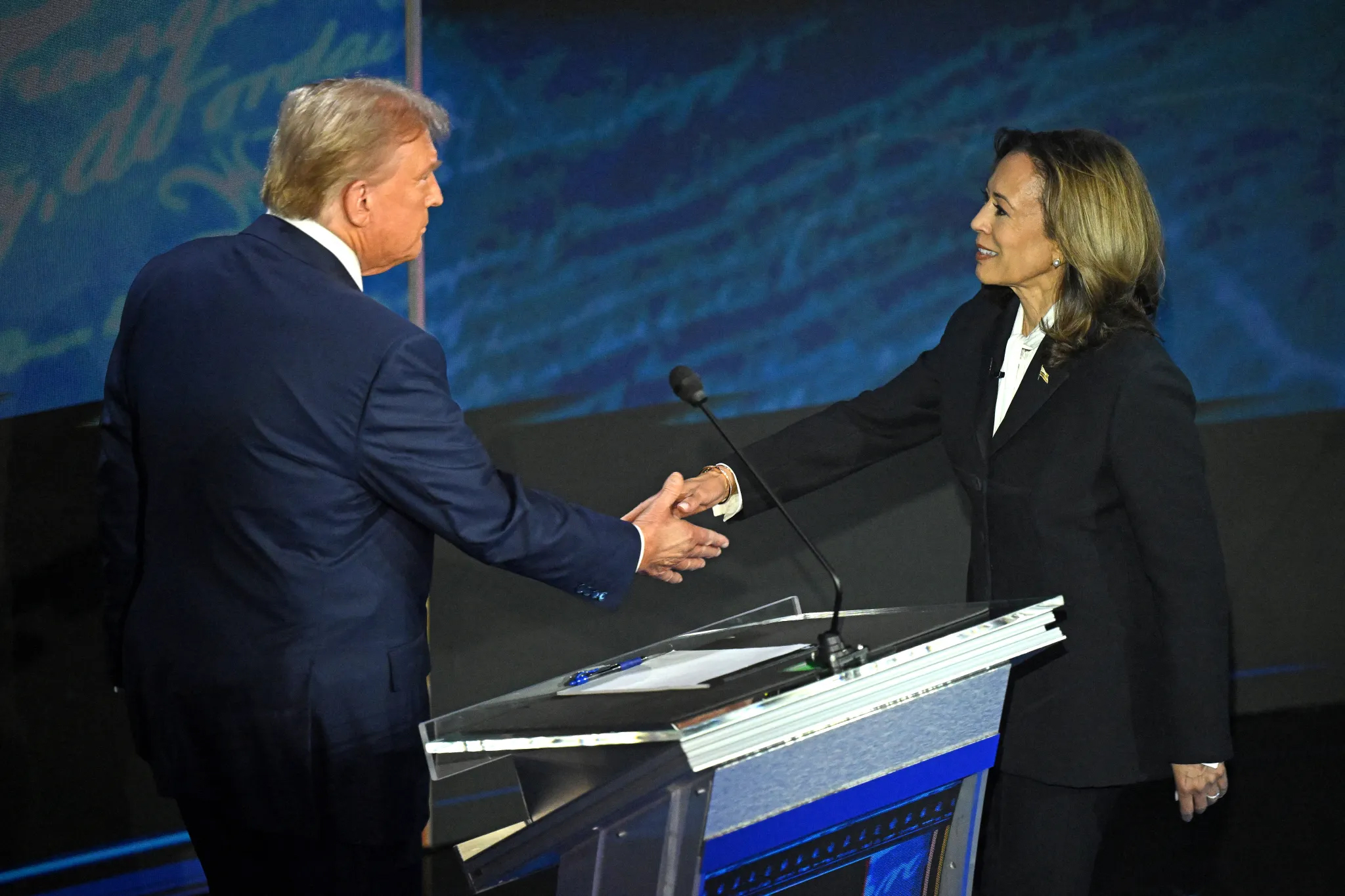In the Arab world today, the war in Gaza dominates the news, with its small Palestinian Christian community caught in the crossfire. But over the last decade, ancient churches have faced persecution in Syria and Iraq, while political instability and terrorism have threatened believers in Egypt, Lebanon, and Jordan.
Nevertheless, the church’s activity in this region is about much more than war and persecution, as the Middle East and North Africa (MENA) chapter of the Lausanne Movement’s State of the Great Commission report shows. For example, congregations have cared for refugees, and online ministries have expanded.
One notable development is the numerical growth of Muslim-background believers (MBBs).
The report provides an ominous description of Christianity in the MENA region: “The outlook for all Christian communities is negative.” Yet the section on MBBs concludes with hope amid the devastation, predicting that “a new church, from among the majority people, will rise up from the ashes of the traditional structures.”
CT spoke with Rafik Barsoum—coauthor of the MENA chapter, president of Message to All Nations, and pastor of a digital church initiative launched in 2022—to elaborate on key ideas in the report. He described the difficulties faced by MBBs and Christian-background believers (CBBs) alike, the witness offered by both, and why he dislikes the distinction between them.
Why did the report begin with a negative assessment?
Iraq, for example, is nearly bereft of Christians. The region is experiencing war, famine, terrorism, poverty, instability, and turmoil in every way. And with any turmoil anywhere, minorities are the first to be affected. In nearly every nation, if they are not facing outright persecution, struggles such as these pressure believers to leave the region.
Ancient churches are losing their people. The Middle East was once the beacon of Christian history; now it is at risk of losing its Christian presence.
But these struggles do not suggest a gloomy picture as concerns the work of Christ. We have seen signs of revival in the last decade like never before. But a price has been paid for it that is not often covered by the news or political analysis. We do not want this persecution to continue, but new signs of hope are emerging.
One of these signs of hope is the MBB community, which the report calls a “movement.”
The word movement is a missiological term describing an intangible awareness that God is drawing people to himself in ways we cannot explain, beyond the work of any one church or organization. It is as Jesus told Nicodemus: The wind blows where it will, and we see its effects in the wave that is forming. People are coming to know the truth through dreams and visions, the work of missionaries, the testimony of the church, and online media ministry.
Amid political turmoil, people are challenging taboos and delusions of the past—independently of this movement, but also as they witness Christian love in action. God is doing something unique.
Yet the report calls this movement “small.” How should it be measured?
The MBB movement is small compared to our aspirations.
We want to see more even as we cannot grasp its true size; only eternity will reveal it. We love to assess numbers for encouragement and evaluation. But while we do our due diligence, we should err on the side of caution in any calculations. After all, Jesus compared the kingdom to a mustard seed, small in appearance but great in significance.
But I have a more serious concern to raise about MBB and CBB terminology.
I come from a family in Egypt that traces its roots back to the time of Christ. And we were among the first evangelicals when missionaries came from the West. But classifying believers based on what background they come from is not healthy in the long term.
We all have different backgrounds—except for our shared experience of sin and death. Without Christ we are lost, and with him we are saved unto abundant life. We acknowledge that the MBB community has distinct features, but we strongly encourage people not to divide the body of Christ into categories. In the past 15 centuries, the Muslim world has never seen so many testimonies emerging as now. Yet our report does not intend to isolate them from the broader Christian scene; they are implicitly recognized in every description.
Our role as CBBs especially is to de-label us all as we emphasize unity.
Many MBBs worship separately from other Christians. Is this appropriate?
It depends on the circumstances.
In many places, separate worship is necessary due to security concerns, familial and social pressures, or prejudice from either side. In other settings, it is possible for MBBs and CBBs to meet together. But in all cases, we are one in Christ and united in heaven. We cannot advise against separate MBB meetings, but we emphasize our ontological solidarity.
Joint fellowship can be decided only at the local level. We do not live in an ideal world, but biblically speaking, there is no Jew or Gentile, no MBB or CBB. I want our ecclesiology to be correct in principle, but I would allow for different expressions, as we have to do what’s possible when the ideal is elusive.
I challenge both MBBs and CBBs to think of one another as beloved peers. We are building the kingdom of God together, united forever in eternity. We might as well dissolve our differences now.
How else is life challenging for MBBs?
The Muslim world is very diverse, from strict fundamentalist contexts with high persecution to more modern and secular contexts that allow for more variation—at least in theory. Persecution exists on a scale.
Many MBBs have lost their jobs, property, and inheritance. They face family dissolution. Their children get assigned to Islamic rather than Christian education in school when their family names indicate their Muslim background. Women are often more affected, as they have less social protection.
But there is also a challenge that comes from MBBs’ understanding of identity. Faith is intertwined with who they are, not just a system of belief as in many Western countries. In the Eastern mentality, I am because we are. It is not just a matter of changing their religion but of being detached from their roots. It is a major psychological challenge to come to Christ, and this factor is not easily addressed.
I admire the courage of our MBB friends and rejoice in the grace God gives them. Many are maturing in their faith and assuming servant-leadership roles in the church.
The report also cited their courage, specifically regarding MBBs’ “public embrace” of faith. Amid persecution, is it necessary for them to proclaim their Christianity?
This is a contentious issue in missions circles. But Jesus said, “Whoever acknowledges me before others, I will also acknowledge before my Father in heaven” (Matt. 10:32). And Jesus said the same about denial. Following Christ comes with a cost. He was rejected, and we will be rejected, but he has overcome the world.
I cannot speak on behalf of MBBs because I am from a context where I can declare my faith in Christ. How to do it wisely is a different question, and there is no general answer. If new Christians are to grow in Christ, they must be surrounded by a wise group of mature believers who walk the journey with them. This is the role of the body of Christ. Those in the church understand the context and are the ones God uses to provide advice.
But each new believer must get to a place where they confess Christ publicly.
The report celebrates that CBBs are also bold in sharing their faith.
Their witness goes beyond direct evangelizing. This last decade witnessed the martyrdom of Egyptian Coptic Christians in Libya who refused to renounce their faith under ISIS. And when the Muslim Brotherhood regime was overthrown in Egypt, the church responded in love and forgiveness as it stood for the truth. It is good to be bold, yet we must be wise as serpents and innocent as doves.
The church faces clear evidence of opposition.
What is happening now is a continuation of one of the main contributions of Christians from the MENA region to the global body of Christ. Local believers have been standing with Jesus since the apostles started the church. Athanasius, a fourth-century bishop from Alexandria, was told, “The whole world is against you.” He replied, “Yes, but I am against the world.”
We have our blemishes, but we have withstood persecution.
How likely is it that one who shares their faith will be persecuted?
It is certainly possible. We have to stress wisdom, wise counsel, and accountability to the local church—especially for foreign missionaries, who, if working independently, can sometimes do more harm than good. In some places, witnessing will be overlooked. In others, it may result in questioning by the state police. Social discrimination is possible. So are surveillance and imprisonment.
People in the MENA region take religion very seriously.
But we are seeing that if Arab believers live a Christlike example and describe how their way of life stems from their personal faith, people want to ask them more. This pattern of inviting inquiry removes many social barriers and gives Christians near immunity from security services. And most importantly, it paves the way for the gospel to be understood and relevant.
Another positive trend in the report celebrates greater cooperation between Christian denominations.
Cooperation is definitely improving. Christians of different denominations can sit together and listen to each other, whereas we used to build animosity upon assumptions. My prayer is that this growing communication will develop further into understanding each other and working together. One sign of hope is that several leaders have demonstrated love to one another.
Evangelicals have long been seen by people in the Catholic and Orthodox denominations as infidels or as wolves who steal sheep. But now that we are in communication, they see that we love Christ and want to serve his kingdom—not destroy their churches. This alone is a great result.
MBBs are a sign of revival. Might all Middle Eastern churches rise again?
Beyond those of a Muslim background, we see new expressions of faith in the digital church. And mature believers are emerging from all demographics, young and old, liturgical and charismatic. But the essentials are love for Christ, love for truth, and love for holiness—amid all that we witness in our world today. Unless the church stands on these pillars, all hope is superficial.
There is so much to anticipate for our region, built on the foundation of those who have gone before. The outlook does not have to stay negative.














































